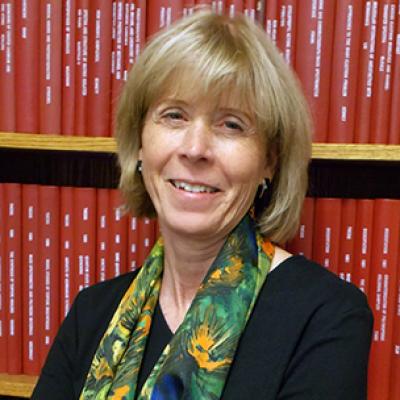Family Timeline
Finding the proper work-life balance can be quite difficult. With all the stress that comes from one's job, it can be typical to prioritize work over other needs, such as self-care and quality time with loved ones. Especially for women in STEM careers, it can be exhausting to face the pressure to start a family while also working hard to advance one's own career. A common theme in the interview of several female faculty members was the question of when would be the most efficient time to start a family. On top of work commitments, starting a family includes the extra commitments of maternity leave, reallocating finances to accommodate children, cooking for them, transporting them to school, being available in cases of emergency, etc. So when is it that the interviewees felt most prepared to start a family?
The "Choice"
This TEDx talk by female engineer Demilade Fayemiwo touches on many topics relating to women's struggles with work-life balance and misogyny in STEM fields. One important misconception that Fayemiwo addresses is the belief that women in STEM must choose between having a "successful career" and a family. Women frequently encounter misogynistic beliefs and expectations in their STEM careers that can lead to a bad work-life balance. The notion that women must dedicate all of their time to their jobs to attain success is harmful. Instead, women should be reassured that they can have both. Greater representation of women scientists achieving success while also having a family is needed. These women can serve as role models to both encourage and inspire future women scientists.
Romantic Relationships
In her TED talk, Fayemiwo brings up an interesting point on how the narrative changes surrounding female scientists in romantic relationships. On one hand is the assumption that women who want to start families are less dedicated to their careers, but on the other hand, Fayemiwo is told by her supervisor to pick someone from her research group to marry because "single women are not stable people." It seems as though the general attitude toward women scientists in relationships does not hold constant; yet the judgmental attitudes of others continue to negatively influence female scientists.
The experiences of several interviewees, however, provide examples of how female scientists can have a family and a career balance. Lisa Diamond, for example, spoke about the negative attitudes surrounding female scientists in relationships and families.
"When I was first hired in the late 90s, there was a sense that if you were a woman who was going to have a baby. It turns into 'well maybe you're not the go-getter that we thought you were.' I think that's changed, and largely because of a lot of the most successful women you know in my department/university, they have had kids." -Lisa Diamond, PhD
The assumption that a woman scientist can not have a successful job and a family is harmful, and should not be a choice that women feel they need to make. Like Diamond mentioned, there are many successful scientists who also have families. Though a female scientist's work-life balance may appear to be different when compared to women of other careers, it is nevertheless still obtainable. Dr. Kirtly Parker Jones also reflects on how she balanced her relationship with her and her husband's career needs.
"So I had a long distance relationship with my now husband. We met and we met in college, but he was, he was getting his PhD. So I'd seen him a couple of times a year. And that was about as much as I wanted for sure." -Kirtly Parker Jones, M.D
Dr. Kirtly Parker Jones had also spoken out about how her career influenced her general attitude toward romantic relationships.
"[Medical school] was a full-time job. And I, and I did it. It was really interesting. It was, it was really interesting. It was more engaging than any relationship with any guy could be. So I really, there wasn't a guy who could be as interesting as medical school." - Kirtly Parker Jones, M.D.
Dr. Kirtly Parker Jones spoke of how she was still able to prioritize her career aspirations, while also making her long-distance relationship work. Her experience, among others, shows that it is feasible to have a relationship and career balance. She dedicated so much precious time toward studying to obtain her medical license, and her hard work paid off.
Starting a Family
It's hard to know the best time to have a child when one has many career demands. Research has found that family responsibilities and one's research department's policies have a disproportionate effect on female faculty when compared to male faculty (Wolf-Wendel, Twombly, & Rice, 2003). Some universities aim to minimize these effects by providing faculty with child-care resources to help with one's work-life balance. This could include on-campus daycare facilities for faculty's children. Cynthia Burrows, a tenured professor in the department of chemistry, reflects on when the "right" time to have children was for her.
From Burrows' perspective, there is never the "right" time to have a child. With she and her husband both being having demanding research positions at the University's chemistry department, there was never a point in Burrows' life where she felt the least stressed or ready to have a child. Instead, she found ways to make it work such as by hiring help in order to establish a better work life balance.
"If you overthink it, there's no good time to have kids because you're busy, you've got something scheduled for next month or next year or whatever, but things happen and you deal with it. Right? So that's what we did." -Cynthia Burrows PhD
Page researched and written by Sarita Som
Later edited by Pamalatera C. Fenn


